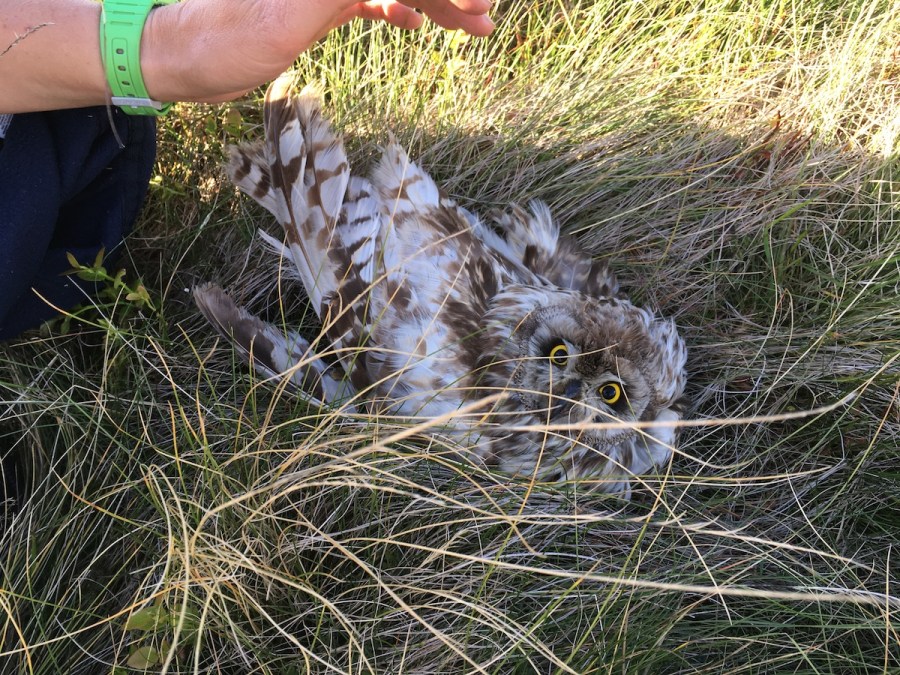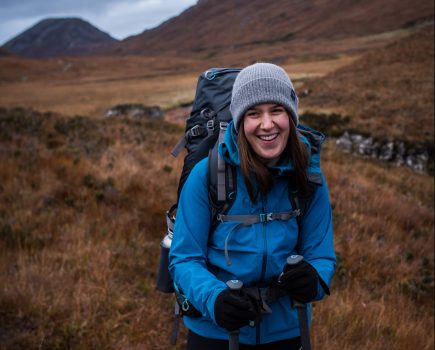Crimes against birds of prey have soared since lockdown was announced in March. We talked to Jenny Shelton, who works with the RSPB’s Investigations Unit, to find out why.
Earlier this month, the RSPB reported that lockdown had triggered a ‘bird of prey persecution crimewave’. The organisation logged 56 potential offences between 23rd March and 15th May with more reported in the past few weeks.
“Since lockdown began, the RSPB has been overrun with reports of birds of prey being targeted,” said Mark Thomas, RSPB Head of Investigations UK. “It is clear that criminals on some sporting estates both in the uplands and lowlands, have used the wider closure of the countryside as an opportunity to ramp up their efforts to kill birds of prey.”
So what’s behind the surge in cases, where are the major hotspots and is there anything hill walkers can do to help?
There appears to have been a sharp rise in cases of raptor persecution over the past few months – the BBC estimated a 400% increase…
We’re not quite sure where they got those figures from, but certainly we’ve been surprised by how many cases have come to light during lockdown. We’ve experienced a big surge of activity involving the shooting, trapping and poisoning of protected birds of prey. Worse still, It’s likely that a lot of cases will have gone undetected, and that this is just the tip of a far larger iceberg. It’s heartbreaking and frustrating.
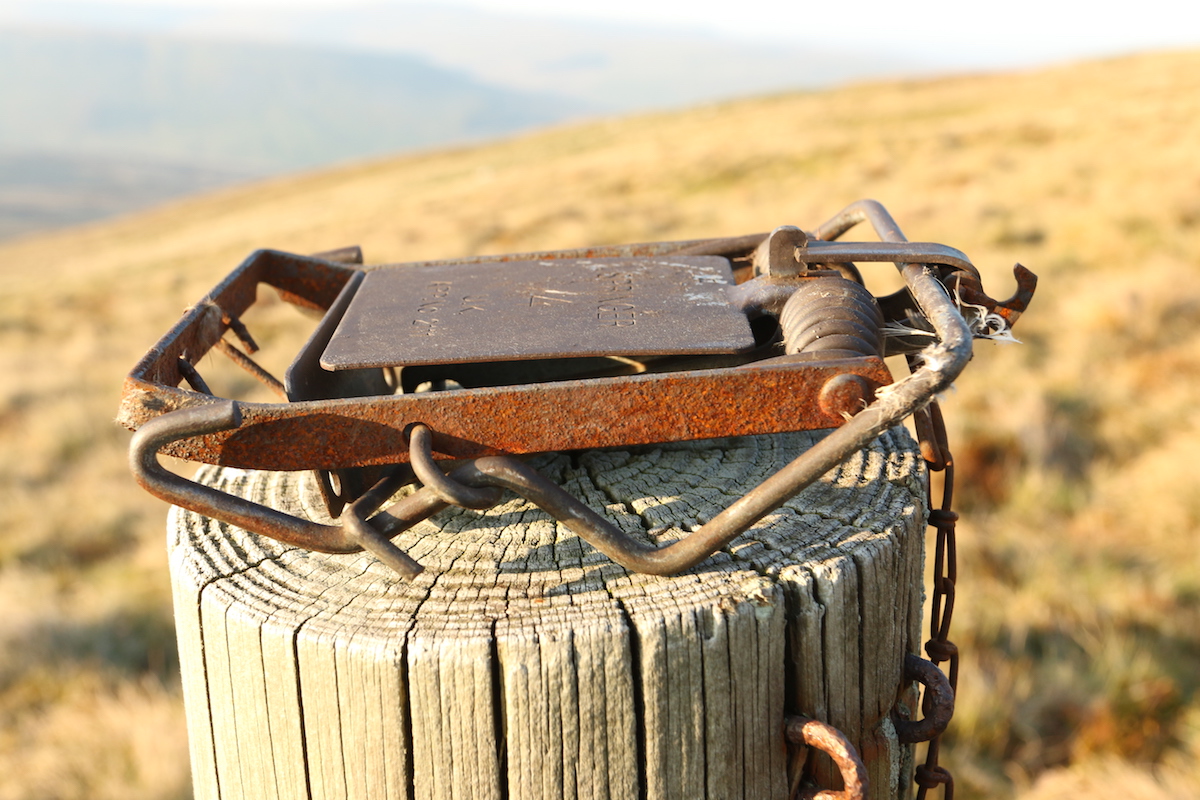
Pole trap on a moor, copyright Guy Shorrock RSPB
Can the rise in incidents purely be credited to lockdown, or is it the continuation of an existing trend?
We actually saw this before in 2001 during Foot and Mouth when there were similar restrictions on access to the countryside. Afterwards we found that bird of prey populations in certain areas had plummeted. We were worried this might happen again and it has proved to the be the case. The first couple of weeks we were getting lots and lots of calls. However, this is a long-term issue – it’s a relentless and ongoing problem.
Which species have been most impacted?
We’ve had a lot of buzzards, one involving a bird found alive in the Northern Peak District where the front of its chest had been completely torn open. It had been shot, and sadly had to be euthanised. When it was examined, they found an older injury from a previous shooting incident. The bird had been shot, survived that, only to be shot again at a later date. Last week, eight men were arrested in North Yorkshire after found buzzards were found shot and stuffed into a wall. Also peregrine falcons, red kites, goshawks – and hen harriers, too, which is of real concern. Hen harriers nest in moorland environments and as a result they are very badly affected by persecution. In England they are teetering on the brink of extinction as a breeding species and it has been found that persecution from humans has been the main driver behind that. They like to nest on the ground in heather moorland and the government itself has acknowledged that this puts them in conflict with people managing game shooting estates.
Which areas of the country are hotspots for this type of wildlife crime?
North Yorkshire is unfortunately the number one raptor crime capital. Also the Peak District, particularly the northern Dark Peak, plus areas of Scotland and the uplands in general. But we’ve had reports from all across the country recently, including lowland areas.
How many reports have come from areas managed for driven grouse shooting?
We are currently aware of 56 confirmed and potential cases since lockdown began and two-thirds of those have been in relation to where land is managed for game shooting. Looking at the confirmed cases alone, this increases to 81%. In North Yorkshire, all of the police investigations involving the shooting of birds of prey involve gamekeepers on grouse moors. That tallies with what we’re familiar with. Since 1990, 67% of those convicted of raptor persecution offences have been gamekeepers.
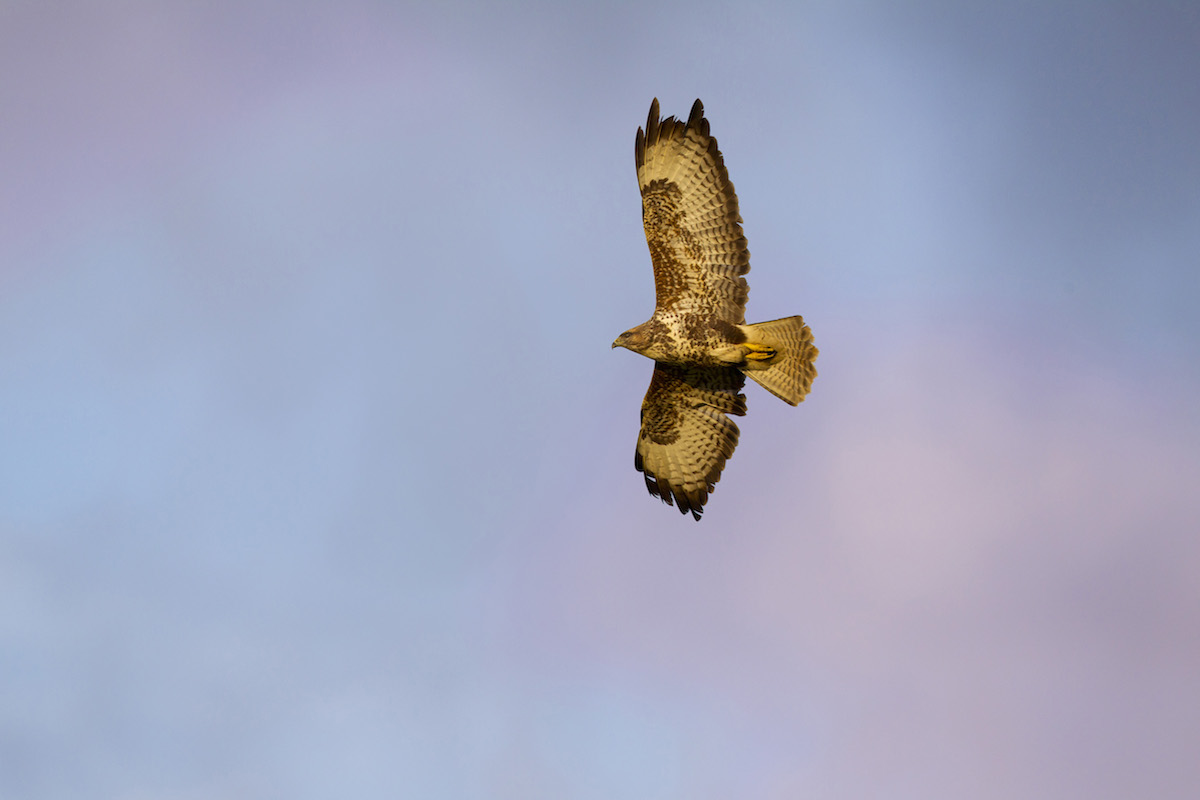
Buzzard Buteo, in flight, UK, March
Is there a way of holding the owners of these estates accountable as well as prosecuting their game keepers?
That is something we’re trying to push through. Currently the estate owners don’t have any responsibility if a crime is detected. So we’re trying to push the government to introduce licenses for driven grouse shooting which could be removed if the law was broken. This would act as a potential deterrent to owners of estates. ‘Vicarious liability’, which is already in place in Scotland, could help too. This would make estate owners accountable for the actions of their staff.
Has this led to any successful prosecutions in Scotland?
Since vicarious liability came into place in Scotland in 2012 there have been two convictions. It’s early days, and it’s a step in the right direction. We would like to see it rolled out in the rest of the UK.
So it’s pretty clear that game keepers are being told to do this?
We’ve had game keepers come forward and saying that this is what they are being asked to do. We’re trying to tell people in this profession that if this is what your employer is asking for, report it. We have a confidential hotline. We do understand if everyone is doing it and it’s what is expected of them then it’s really hard for people to stick their heads above the parapet. A few people from that community have started to speak out, but we need more people to address the problem.
Can you name the estates that are the worst offenders?
Unless someone’s been convicted then you can’t really point a finger. It’s hard to give names, but they are in those hotspot areas and there are a few we’re keeping an eye on.
What response have you had from the government to your lobbying?
In Scotland, a review of grouse moors is underway known as the Werritty Review. We’re calling for a similar independent review to be conducted in England and Wales. Not many in-roads have been made… A few people are popping up in support of us here and there – MP Angela Rayner [Labour] recently retweeted one of our Tweets expressing concern that this is happening in the Peak District – but there’s still a long way to go.
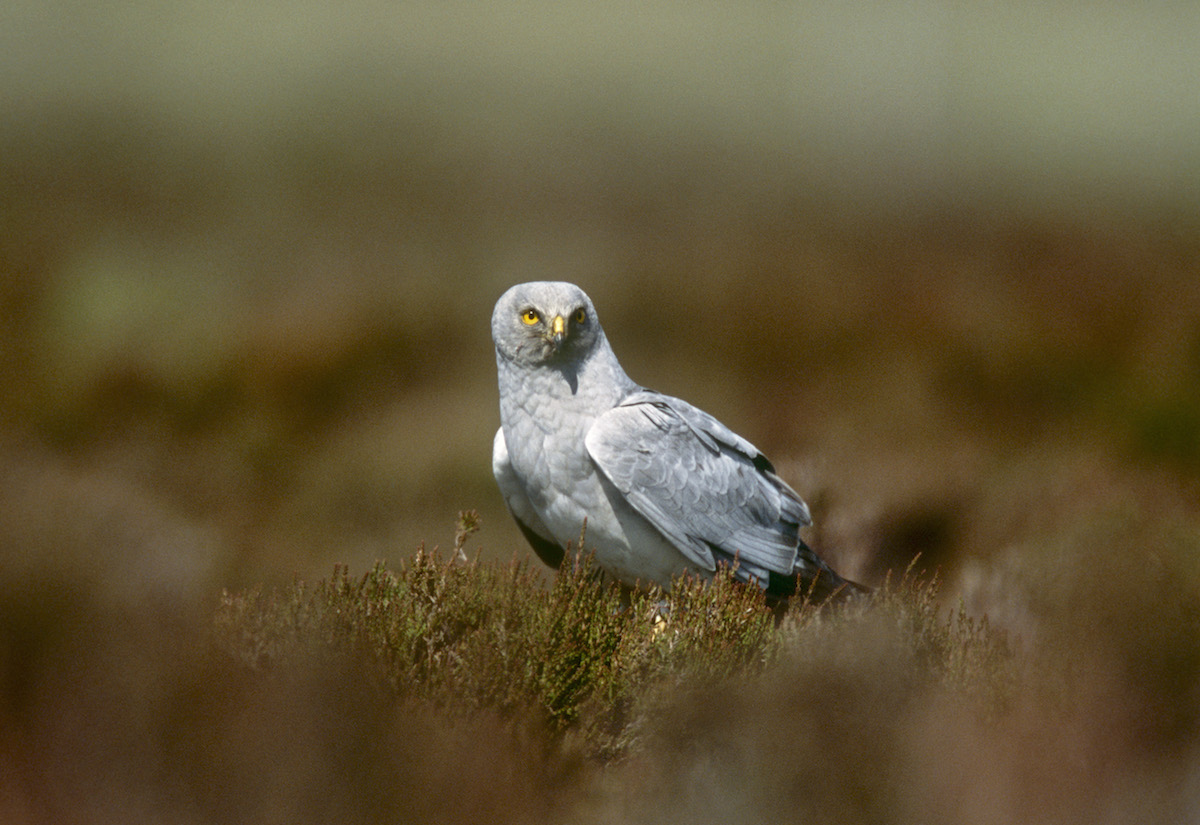
Hen harrier, Loch Gruinart RSPB reserve, Islay
But public opinion is definitely behind you…
Yes, quite rightly people have had enough and are demanding that something is done about it. People are starting to be more aware of the issue and clearly something is going to have to change. The shooting world must evolve – there’s no future for an industry that relies on criminality. They are jeopardising their own reputations. Lots of people are calling for an outright ban on driven grouse shooting. That isn’t the RSPB position, but you can understand that people are rightly horrified when they see these images.
Some of our readers might wonder why the RSPB doesn’t support an outright ban…
It’s a fair question. The RSPB is a conservation and science-led organisation, not a welfare charity, so we are neutral on the ethics of shooting. There would be no need to ban grouse shooting if shoots operated sustainably and within the law. However this is not happening in all cases, and protected species of the highest conservation concern are being put at risk. The shooting industry has had years to get their house in order, and the longer this takes the louder these calls for a ban may get.
Surely there are conservation concerns over land managed for grouse shooting, however?
Yes, the raptor persecution side of it is just one of the issues. The issue of burning, which releases CO2 into the atmosphere and exacerbates flooding, is also coming under the spotlight. Grouse moors need to show that they can operate legally and sustainably, especially in light of the climate and biodiversity crisis. This is why we are calling for a review.
The RSPB is currently reviewing its policy on shooting overall, based on scientific evidence and our members’ views. That review is in progress and will be announced at our AGM in November.
Is there anything that walkers can do to help deter offenders or make sure they’re convicted?
The public have a really important role to play. Most of the cases that end up in court have been initiated by members of the public who have reported something. If you see anything strange when you’re out and about, like a dead or injured bird of prey in suspicious circumstances, traps set on poles or large cage traps with a bird of prey inside, please call the police. Email us too on crime@rspb.org.uk. We can’t be everywhere so you are our eyes and ears. Birds of prey are part of the wild experience, and everyone has a right to see them in the skies where they belong.
Stay inspired: subscribe to The Great Outdoors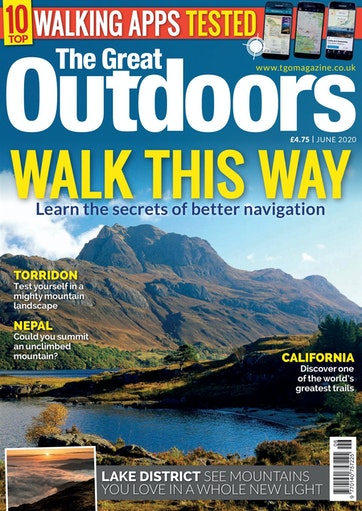
The lockdown is beginning to lift, but a ‘full’ outdoor life is still some way off. Even so, we’re working keep your outdoor spirit alive, take you to places you can’t go, and conjure the feelings that walking, wild camping and backpacking in the hills and mountains inspire.
To show our readers our gratitude for their support, current subscribers have had their subscriptions upgraded to include free access to the digital edition of the magazine. We’re also continuing to offer new readers:
- Three issues of the magazine along with the accompanying digital editions for £9.99 plus free postage, with no ongoing commitment to subscribe.
- Full subscriptions at just £15 for your first six issues.
- Or, if you want to catch up on content you may have missed, you can buy individual back issues with free postage and packaging.

